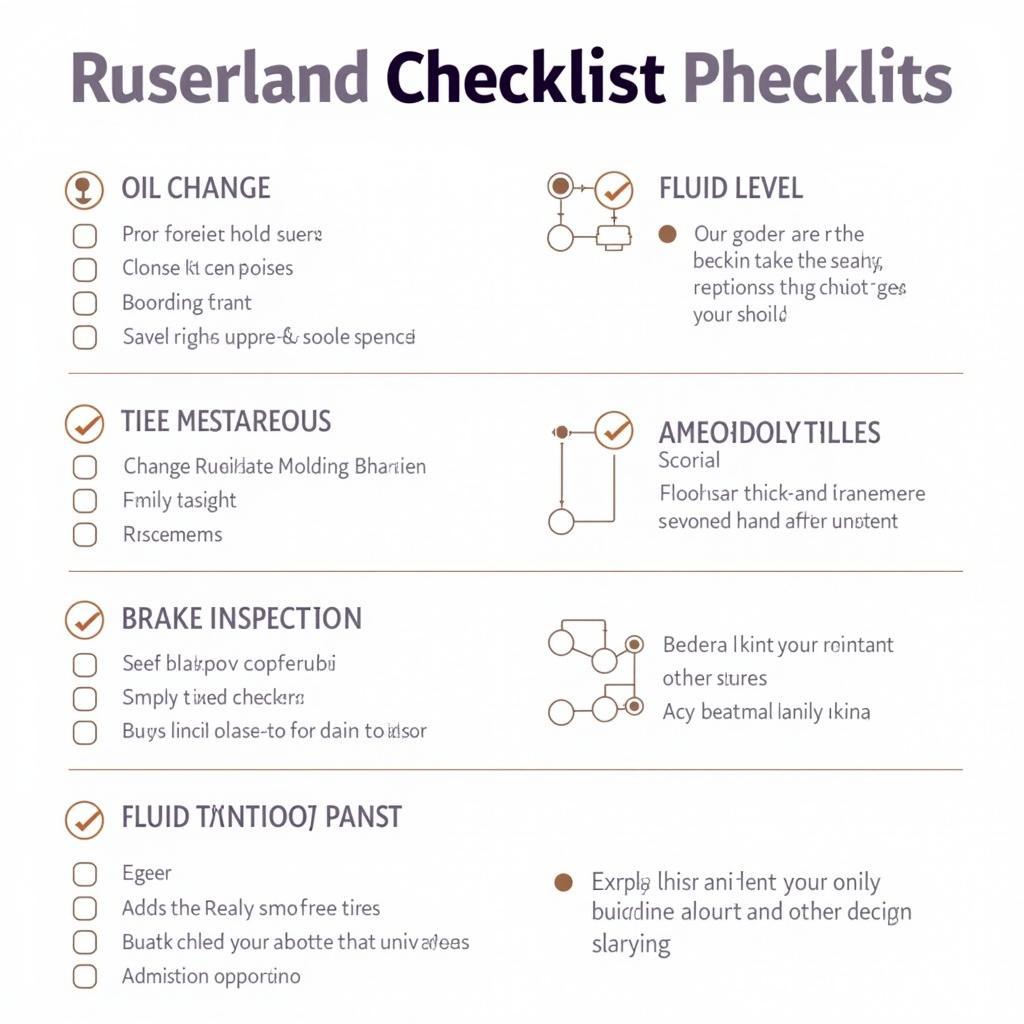Regular car maintenance is crucial for the safe operation of your vehicle. While it might seem like an unnecessary expense, neglecting routine maintenance can lead to serious problems, putting you, your passengers, and other road users at risk.
How Does Car Maintenance Affect Safety?
Regular car maintenance ensures that all the vital components of your vehicle are functioning optimally. This includes:
- Brakes: Worn-out brake pads or rotors can result in longer stopping distances, increasing the likelihood of accidents.
- Tires: Underinflated or worn tires reduce traction and handling, making it difficult to control the vehicle.
- Lights: Faulty headlights and taillights can impair visibility, making it challenging to see and be seen by other drivers.
- Engine: A well-maintained engine delivers optimal performance, ensuring that you have sufficient power to accelerate and merge safely.
- Steering System: A faulty steering system can make it difficult to steer the vehicle correctly, potentially causing you to swerve or lose control.
What Are the Benefits of Regular Car Maintenance?
By keeping your vehicle in top condition, you can significantly enhance its safety, including:
- Reduced Risk of Accidents: A well-maintained car is less likely to break down or malfunction on the road, reducing the risk of accidents caused by mechanical failures.
- Improved Handling and Control: Regularly maintained components such as tires, brakes, and steering systems ensure that you have the control you need to react quickly and safely to unexpected situations on the road.
- Increased Visibility: Working headlights, taillights, and turn signals make your vehicle easier to see by other drivers, reducing the risk of collisions.
- Enhanced Engine Performance: A properly tuned engine delivers optimal performance, ensuring that you can accelerate and merge safely with other vehicles.
 Car maintenance checklist
Car maintenance checklist
What Are the Common Car Maintenance Tasks?
Regular car maintenance tasks should be performed at recommended intervals as outlined in your vehicle’s owner’s manual or by your trusted mechanic. Here are some of the essential tasks:
- Oil Change: This is one of the most crucial maintenance tasks. Fresh oil lubricates engine components, preventing wear and tear.
- Tire Rotation: Rotating your tires helps to ensure even wear and tear, extending their lifespan and improving handling.
- Brake Inspections: Your brakes need regular inspections to ensure that the pads, rotors, and calipers are in good condition.
- Fluid Levels: Maintaining proper levels of fluids such as coolant, brake fluid, and windshield washer fluid is essential for optimal performance and safety.
- Air Filter Replacement: A clean air filter allows the engine to breathe properly, improving performance and fuel efficiency.
- Battery Inspection: A weak battery can lead to problems with starting your vehicle.
“As a seasoned mechanic with over 20 years of experience, I’ve seen firsthand the devastating consequences of neglecting regular car maintenance. It can lead to costly repairs, unpredictable breakdowns, and in worst-case scenarios, accidents that cause injuries or even death,” says John Smith, a certified mechanic with a reputation for his expertise.
How Often Should I Get My Car Serviced?
The recommended service intervals for your vehicle will depend on various factors, such as the make and model, driving conditions, and usage. As a general guideline, you should aim for:
- Oil Change: Every 3,000 to 5,000 miles or every 3 to 6 months.
- Tire Rotation: Every 5,000 to 7,500 miles.
- Brake Inspections: Every 12,000 to 15,000 miles or every 12 months.
- Fluid Levels: Check regularly, especially before long trips.
- Air Filter Replacement: Every 12,000 to 15,000 miles or every 12 months.
- Battery Inspection: Twice a year or more often in harsh weather conditions.
“I highly recommend following the recommended maintenance schedule outlined in your car’s owner’s manual. It’s a crucial investment in your safety and the longevity of your vehicle,” shares Sarah Jones, a certified automotive technician with a focus on preventive maintenance.
Conclusion
Regular car maintenance is not just a matter of convenience; it’s essential for your safety and the safety of others on the road. By adhering to a scheduled maintenance plan, you can ensure your vehicle is in optimal condition and minimize the risk of breakdowns and accidents.
Contact AutoTipPro today to schedule your next car maintenance service. Our team of experienced technicians will ensure your vehicle is roadworthy and safe for you and your loved ones.
Phone: +1 (641) 206-8880
Office: 500 N St Mary’s St, San Antonio, TX 78205, United States
FAQ
Q: What happens if I neglect car maintenance?
A: Neglecting car maintenance can lead to several problems, including breakdowns, safety hazards, decreased fuel efficiency, and costly repairs.
Q: What are the most important car maintenance tasks?
A: The most important car maintenance tasks include oil changes, tire rotations, brake inspections, fluid checks, and air filter replacements.
Q: Can I perform car maintenance myself?
A: Some basic maintenance tasks can be performed by yourself, but more complex tasks require professional expertise.
Q: How can I find a reliable mechanic?
A: Ask for referrals from friends and family, check online reviews, and look for mechanics who are certified by reputable organizations.
Q: What are the signs of a car in need of maintenance?
A: Some common signs include strange noises, unusual smells, warning lights on the dashboard, poor performance, and difficulty starting.





Leave a Reply